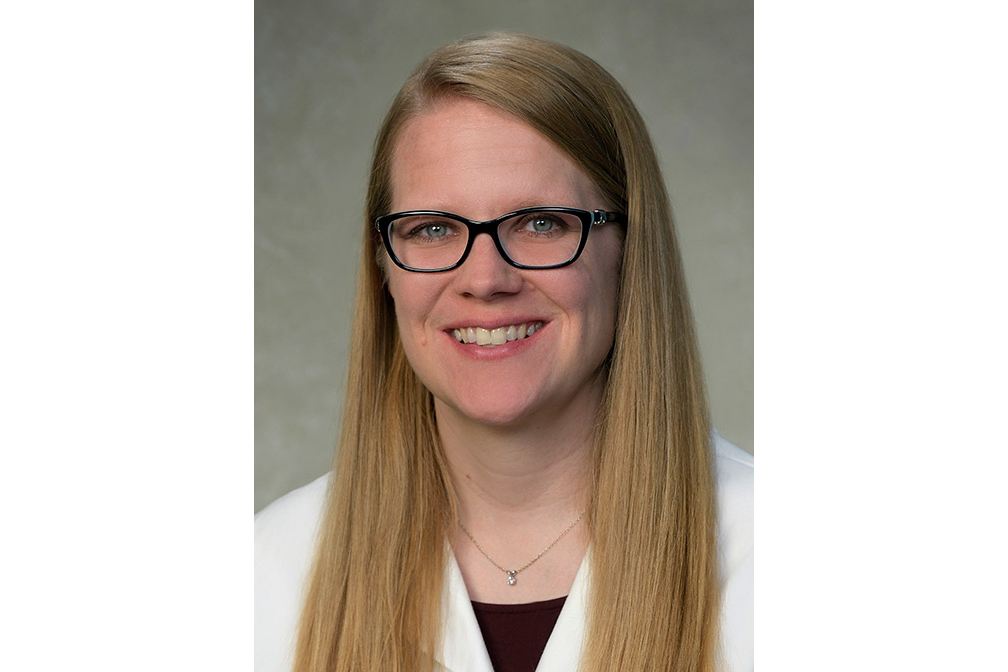
ECOG-ACRIN Names University of Pennsylvania’s Jennifer Eads As Its Young Investigator of the Year
June 21, 2022
From the Co-Chairs, June 2022
June 21, 2022Now Enrolling: EA9213 for T-Cell Acute Lymphoblastic Leukemia

EA9213 – A Phase II Study of Daratumumab-Hyaluronidase for Chemotherapy-Relapsed/Refractory Minimal Residual Disease (MRD) in T Cell Acute Lymphoblastic Leukemia (T-ALL)
The study chair for this trial is Shira Dinner, MD (Northwestern University). The study co-chair is Talha Badar, MD (Mayo Clinic in Florida).
T-cell acute lymphoblastic leukemia (T-ALL) is an aggressive hematologic malignancy that accounts for approximately 25% of adult ALL cases. Compared to patients with the more common precursor B-cell ALL (B-ALL), patients with T-ALL often present with a greater number of high-risk clinical features. The historical treatment approach is chemotherapy and possibly a stem cell transplant. However, relapse during active therapy is common, at which point treatment options are limited.
Prior research has shown minimal residual disease (MRD) to be the most sensitive and specific predictor of long-term survival in both B-ALL and T-ALL. One study demonstrated that although patients with T-ALL appear to clear MRD more slowly than those with B-ALL, the patients who become MRD-negative at the end of consolidation had favorable outcomes.1 Yet most studies have not measured rates of MRD clearance at later time points in chemotherapy after induction or consolidation for patients that do not go on to stem cell transplant. Even without this MRD data, the relapse and survival rates suggest that ongoing treatment with chemotherapy alone in MRD-positive patients is inadequate.
In other clinical trials, the immunotherapy blinatumomab effectively cleared MRD in B-ALL, which resulted in significantly longer relapse-free survival and overall survival. However, no agents have been studied for the treatment of MRD in T-ALL; thus, no standard of care exists. Study EA9213 will test the efficacy of daratumumab and hyaluronidase at eliminating MRD. Daratumumab-hyaluronidase is a monoclonal antibody that is currently FDA-approved for multiple myeloma and light chain amyloidosis.
EA9213 is a single-arm phase II study. All patients will receive daratumumab-hyaluronidase once weekly for up to four doses during Course 1. A bone marrow biopsy will be performed on Day 29. Patients with complete MRD response (MRD-negative) on Day 29 may receive an additional four weekly doses of daratumumab-hyaluronidase during Course 1B (for eight total doses). Patients who do not have a complete MRD response (MRD-positive) after four weekly doses may receive an additional four weekly doses of daratumumab-hyaluronidase in combination with chemotherapy during Course 1A (for eight total doses). A bone marrow biopsy will be repeated on Day 64 or on count recovery to assess response. Patients who are MRD-negative on treatment can undergo an allogeneic stem cell transplant at any time after Course 1, Course 1A, or Course 1B at the treating physician’s discretion. They may also receive donor lymphocyte infusion after achieving a complete MRD response and remain on treatment with daratumumab.
Patients who are MRD-negative who do not move on to transplant after the eight doses during Course 1, Course 1A, and Course 1B may proceed to Course 2 with daratumumab-hyaluronidase once every two weeks for eight doses. These patients will undergo surveillance bone marrow biopsies with MRD assessment performed per local standards as clinically indicated per the treating physician’s discretion. Patients who are MRD-positive on Day 64 will come off study treatment.
Patients are eligible for this study if they have documented T-ALL and are in first or later hematologic complete remission or complete remission with incomplete count recovery after a minimum of two blocks of intensive chemotherapy. They must have persistent or recurrent MRD ≥ 10-4. Patients may have undergone a prior allogeneic stem cell transplant but may not have graft-versus-host disease that requires ongoing immunosuppressive therapy.
Learn more about EA9213 at ecog-acrin.org.
1. Brent L. Wood, Stuart S. Winter, Kimberly P. Dunsmore, Meenakshi Devidas, Si Chen, Barbara Asselin, Natia Esiashvili, Mignon L. Loh, Naomi J. Winick, William L. Carroll, Elizabeth A. Raetz, Stephen P. Hunger; T-Lymphoblastic Leukemia (T-ALL) Shows Excellent Outcome, Lack of Significance of the Early Thymic Precursor (ETP) Immunophenotype, and Validation of the Prognostic Value of End-Induction Minimal Residual Disease (MRD) in Children’s Oncology Group (COG) Study AALL0434. Blood 2014; 124 (21): 1. doi: https://doi.org/10.1182/blood.V124.21.1.1 ↩
![ECOG-ACRIN logo[19516]275×75](https://blog-ecog-acrin.org/wp-content/uploads/2021/03/ECOG-ACRIN-logo19516275x75.png)
